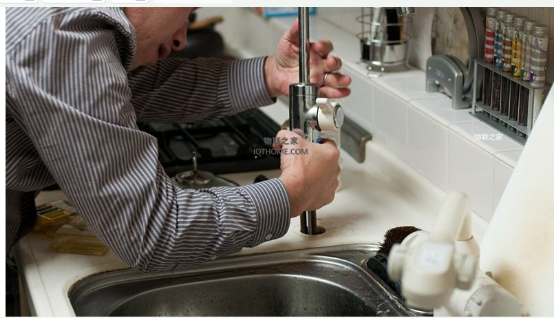Do you know how does the water sensor work?
Water damage is one of the most expensive home insurance claims and the main cause of house damage. However, the use of smart water sensors can reduce the impact of sudden water leaks and reduce losses. It will send you an alert notification when a leak is detected somewhere in your home, thus easily solving the leak problem.
Whether you are working in the office, at home, or going on vacation, smart water sensors are an important tool for protecting the safety of your home.
What is a smart water sensor?
A smart water sensor (also called a flood sensor) is a small tool that you can place near several potential leaking points in a house, and it will notify you as soon as a leak is found.

These points can be leaks in the washing machine, broken pipes or sudden breaks in the water heater, and any other critical areas that may cause leaks.
Benefits of smart water sensors
There are several benefits to installing smart water sensors in different parts of the home. These benefits include:
▲ Better security: The sensor will immediately detect water leakage and alert you to it. The water leakage may be dangerous (for example, cause electrical risks), or cause structural damage, pollution or flooding to the house.
▲ Help you save money: reduce expensive damage and repair costs, while avoiding the trouble of repairing at home.
▲ Immediately remind possible leaks and dangers to speed up the response. This sensor will remind you to reduce the risk of mold, floor deformation, flooding and other risks that may accumulate over time.
▲ Help to avoid loss of personal property.
How smart water sensors work?
Most water sensors have a transmitter inside that can send any leak alarms it detects.
Once the metal probe that is part of the device is touched, the presence of water is monitored. When this happens, the sensor measures the conductivity between the probe and the water.
You can then send you an alert or signal through the app on your smartphone, or, if monitored by a professional security company, it will send a signal directly to them.
Where to install or place smart water sensors?
You can install a smart water sensor in any place where there is a potential leak, such as next to a toilet, laundry room, refrigerator, or dishwasher. In addition, the supplier's installation instructions will list where to avoid installing the sensor, because some sensors cannot be placed outdoors or on the carpet.
You can also install it near water heaters, washing machines, water supply pipes, ice machines, and any other places that may cause water damage in your home.
Make sure to regularly check the water supply pipes for corrosion, rust and damage, and perform regular maintenance on these areas before a leak occurs.
You don't need too many water sensors, but the exact number depends on the potential water damage and the condition of the house. List the areas you want to monitor, and then connect the sensors to cover a larger area, or add wired sensors to expand its monitoring capabilities.
To sum up
The smart water sensor may seem optional, but its benefits far outweigh any issues you have to consider before purchasing. (Source House of Things) In the long run, this will save you money, including the huge water fee due to water leakage, and you can avoid it by installing a water sensor.
If you want to know more, our website has product specifications for sensors, you can go to ALLICDATA ELECTRONICS LIMITED to get more information

